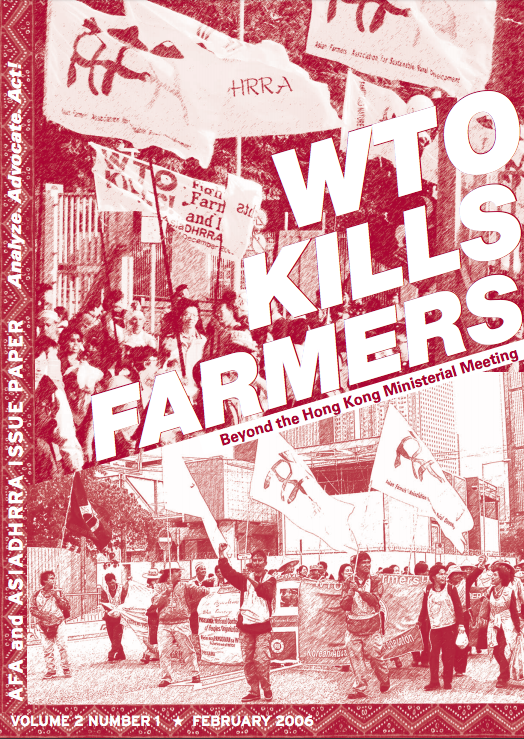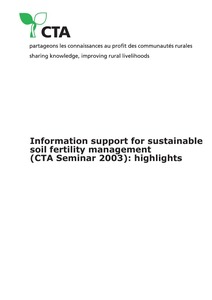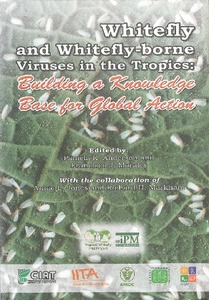On the occasion of the International Year of Mountains-2002, FAO and its partners undertook a large-scale assessment and global review of the current status and future trends of integrated and participatory watershed management. The overall objectives were to promote the exchange and…
The World Trade Organization (WTO) hailed the recent Hong Kong Sixth Ministerial Meeting last December 2005 as a positive movement towards the conclusion of the Doha Development Round. The round was supposedly geared towards ensuring that trade contributes to the development objectives of least…
Sharp inequalities in the distribution of land remains a major cause of extreme poverty in many developing countries. Some instances are the result of ownership patterns inherited from colonial administrations, others are linked to the struggle for economic prosperity in the post-independence…
‘Poor soils make poor people, and poor people make soils worse’. This is a situation that can be seen in many ACP countries. What information support can be offered...
This draft report prepared by an FAO - Investment Centre team upon request of the World Bank, is based on an extensive review of available information including technical papers and policy statements on OECS agriculture and on findings of short visits to the OECS countries to review development…
Situación de los bosques del mundo –que llega ahora a su sexta edición– presenta un panorama mundial del sector forestal en el que se ofrece la última informa-ción disponible sobre actividades y acontecimientos. Colaboraciones de organizaciones no gubernamen-tales (ONG), personas que actúan a…
El marco político para la gestión forestal es un proceso dinámico de renovación e innovación. Nuevas actitudes públicas hacia el bosque y el desarrollo forestal y nuevos actores políticos presionan por un mayor énfasis en la importancia ambiental y social y por más participación en las…
Access to land is essential to food production and income generation. It is also a key social and economic asset, crucial for cultural identity, political power and participation in decisionmaking. Social and cultural beliefs often discriminate against people because of gender, social class or…
El acceso a la tierra es indispensable para la producción de alimentos y la generación de ingresos. Asimismo, constituye un bien social y económico decisivo, que reviste una importancia crucial para la identidad cultural, el poder político y la participación en el proceso de toma de decisiones.…
L’accès à la terre est indispensable pour produire de la nourriture et créer des revenus. C’est aussi un atout social et économique déterminant qui donne accès à l’identité culturelle, au pouvoir politique et à la prise de décisions. Les préjugés sociaux et culturels sont souvent responsables d’…




